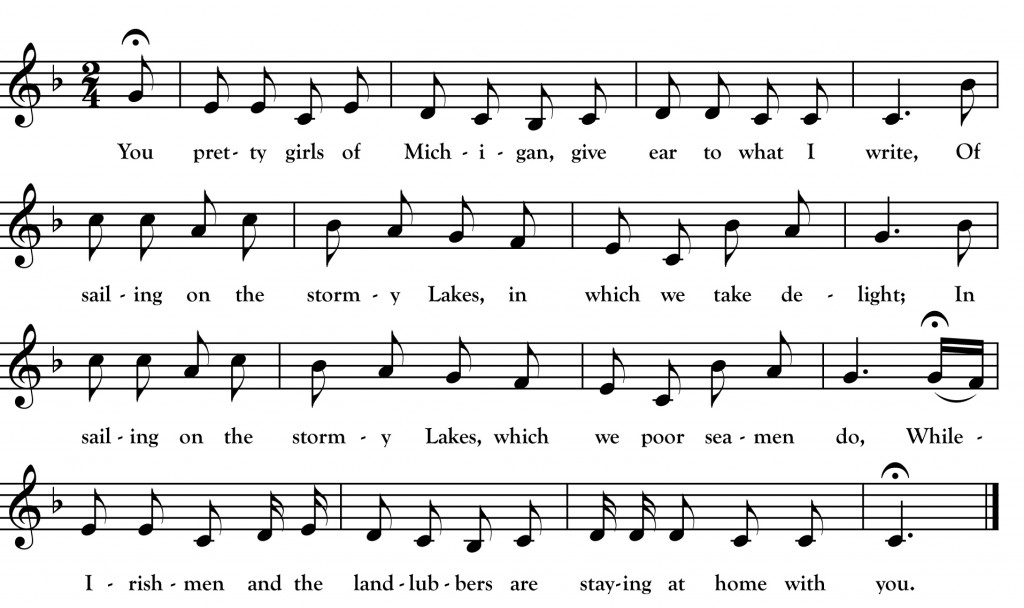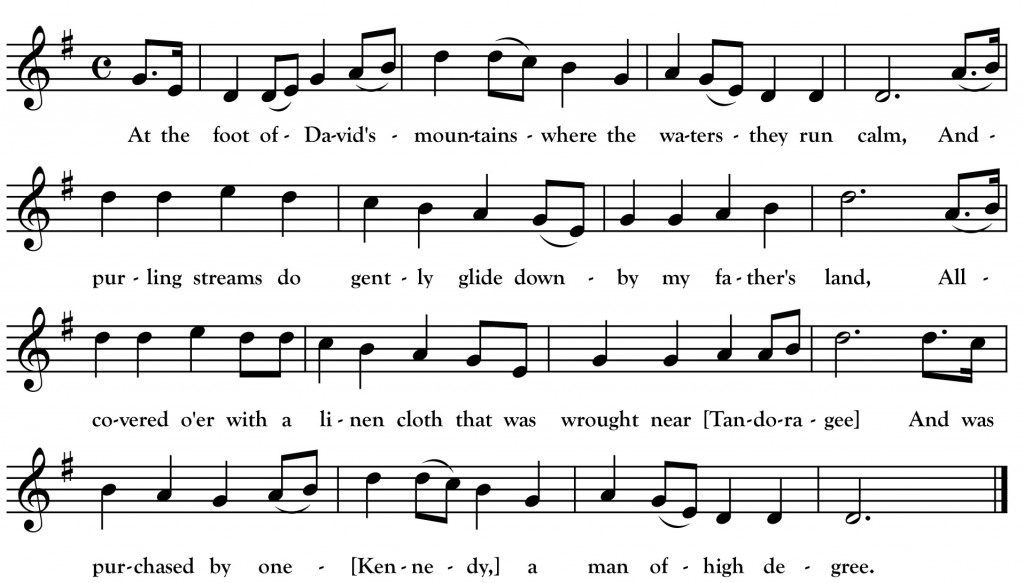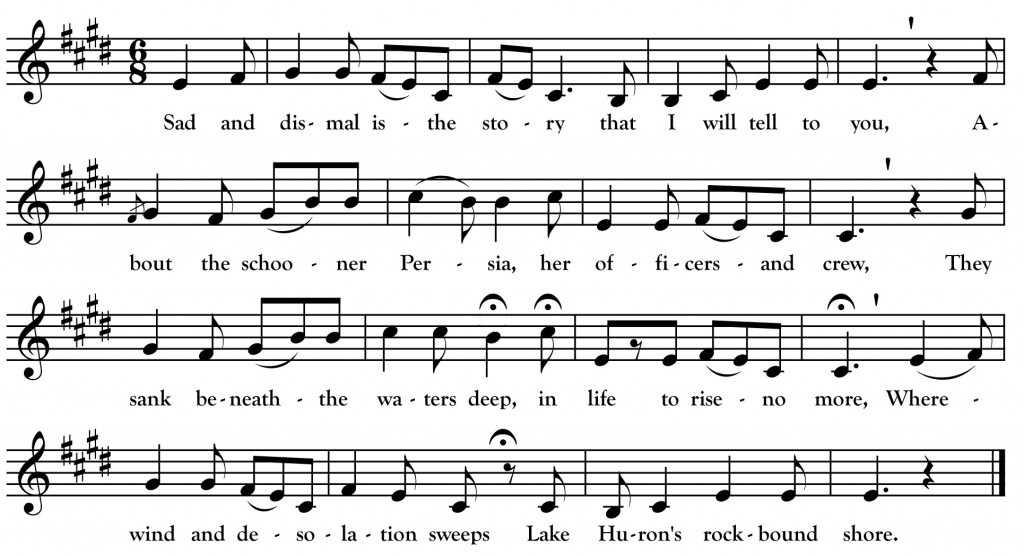You Pretty Girls of Michigan

[As I was learning this song over the last few weeks, a different melody for the 4th line came into my head that *I think* I’m stealing from another Great Lakes song with a similar melody. I liked it, so that’s how I sing it here.]
You pretty girls of Michigan, give ear to what I write,
Of sailing on the stormy Lakes, in which we take delight;
In sailing on the stormy Lakes, which we poor seamen do,
While Irishmen and the landlubbers are staying at home with you.
They’re always with some pretty girls a’telling them fine tales
Of the hardships and the hard day’s work they’ve had in their cornfields;
And when it’s eight o’clock at night it’s into bed they crawl,
While we, like jovial hearts of oak, stand many a bitter squall.
You pretty girls of Michigan if you did only know
The hardships and dangers we seamen undergo,
You would have more regard for us than oft you’ve had before;
You’d shun to meet those landlubbers that lounge about the shore.
For oft at twelve o’clock at night when the wind begins to blow;
“Heave out, heave out, now lively lads, roll out from down below!”
It’s now on deck stands every man, his life and ship to guard;
“Aloft! Aloft!” the captain cries, “send down the tops’l yard!”
And when the seas are mountain high and toss our vessel ’round,
And all about does danger lurk, the vessel may go down!
Now every man is on the deck, all ready to lend a hand
To shorten sail to weather the gale until we reach the land.
We sail the Lakes from spring to fall from Duluth to Buffalo,
While landlubbers are home with you or about their fields they go;
We sail the Lakes and money make for the girls that we adore,
And when our cash is getting low, we ship again for more!
________________________________________________________
This month’s song comes from a blend of sources. The prolific collector of Great Lakes folksong Ivan Walton put down the above text based on versions gathered from Pat Banner of St. Clair, Michigan, and Captain A.E. Baker of Dunkirk, New York in 1933. Walton’s composite text is published in the wonderful book Windjammers (Walton, Ivan and Joe Grimm. 2002. Detroit: Wayne State University Press) which I would strongly recommend to anyone interested in songs of the Great Lakes. Walton did not collect a melody for this song.
A closely related song, “Ye Maidens of Ontario,” was collected in Bemidji, Minnesota in 1923 by collector Franz Rickaby from the singing of Albert Hannah. Above, I have married the words collected by Walton to the melody sung by Hannah. Normally, as a proud Minnesotan, I would stick to the words also collected in Minnesota but, in this case, it is the Michigan/New York text that contains a rare reference to a Minnesota place name: Duluth. Of course, Duluth was (and is) Minnesota’s gateway city to the Great Lakes and, as the phrase “Duluth to Buffalo” implies, it was the end of the line for these rough and tough freshwater sailors.
The pairing of “Irishmen and landlubbers” in the first verse is interesting. Irishmen certainly sailed the Lakes themselves and Irish names appear in other Great Lakes ballads (see N.S. Apr. 2014).



